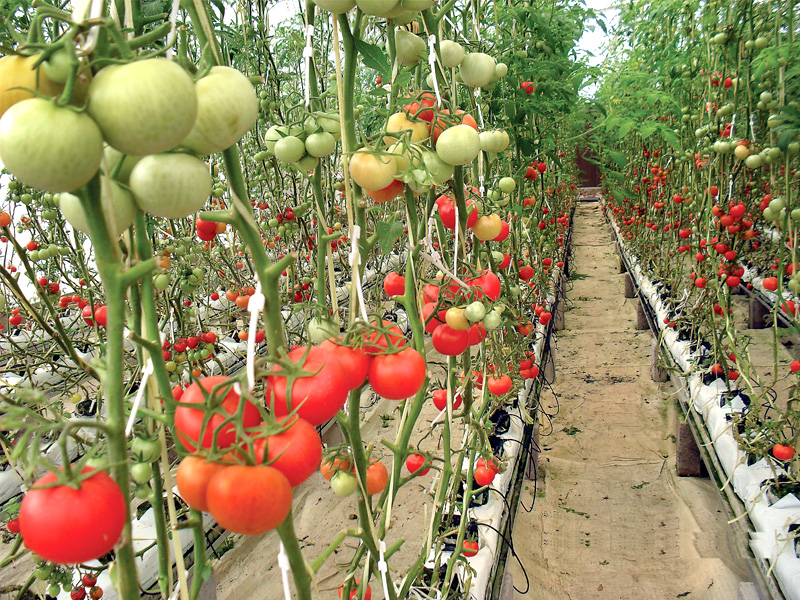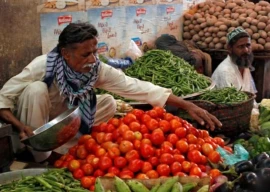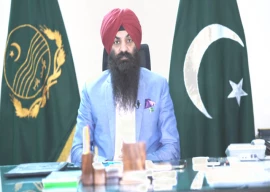
Four drains collecting domestic waste water pass through Ravi Town, Allama Iqbal Town, Samanabad Town and Wagha Town. For several years, small farmers, owning one to ten acres, have drawn water from the Gulshan Ravi, Shafiqabad, Babu Sabu, and Katarband drains to irrigate their crops along both sides of Bund Road, from Azadi Chowk to Shahpur Kanjran.
In the last two decades, a number of industrial units have been established that dump their waste into these drains. Previously carrying only domestic sewage, the water now carries pollutants from textile, dyeing and electroplating units, and hospitals and clinics in northern Lahore, mostly in Ravi Town and Wagha Town.
Grains and vegetables grown with this water may contain industrial pollutants including heavy metals such as cadmium, which can cause kidney and liver failure and intestinal cancer, a doctors and nutritionist told The Express Tribune. Bleaching agents used in dyeing can hamper neurological growth in children and cause retardation, he said. Pollutants from electroplating units can include cyanide and copper.

Officials of the Irrigation Department, Agriculture Department, Food Department, Environmental Protection Department, the Water and Sanitation Agency and the town municipal administrations, when asked why farmers were not being stopped from using the contaminated water for irrigation purposes, insisted that this was not their responsibility.
Hafiz Zahid, a resident of Rafiabad, a small residential area in Allama Iqbal Town, said that pumping stations can be seen all along the drain in the area for the drawing of water for irrigation.
The most commonly grown vegetable are coriander, mint, green onions, cucumbers, radishes and carrots, said Zahid, a grade-12 government official. The farmers use sewage water for two reasons – to avoid paying the tariff on canal water or pumping groundwater through tube wells, and to avoid purchasing fertiliser.
“It is an activity not only rampant for years, but growing. It isn’t seen as a crime and no one is interested in putting an end to it,” said Zahid. He now grows his own vegetables on the roof of his house to ensure that they are safe to eat.
A government official residing in the area nearby said the vegetables grown using sewage appear “bigger and juicier, but have a different taste”.
An Irrigation Department official said that his department’s job was just to maintain the drains, not to see where the water was being used. “We keep a track of canal waters and commercial groundwater tube wells and pumps, but not drains. We just check them for repairs,” he said.
An EPD official, on the condition of anonymity, said the departments should work together in finding a way to deal with this activity. He said that there was no specific law dealing with farmers growing vegetables using water contaminated with sewage, but it could potentially be tackled under Sections 268 (public nuisance), 269 (negligence leading to spread of disease), 270 (malignant act leading to spread of disease) and 278 (making the atmosphere noxious to health) of the Pakistan Penal Code. “But no one is willing to pursue the matter,” he said.
Muhammad Abrar Malik, TMO of Ravi Town, denied that any such activity was going on in his area. “It is too congested. A marla costs Rs500,000. How can anyone afford to buy enough to raise vegetables?”
Muhammad Arif, TMO of Data Ganj Baksh Town, said there were only four areas by the river bed utilising River water to grow crops. He too denied that residents or farmers were redirecting drain water to grow vegetables.
Saleem Khan, TMO of Allama Iqbal Town, said it was not a crime to grow crops using sewage. “These people have been growing vegetables here for more than 50 years. It isn’t my responsibility if the drains did not contain as much poison back then as they do now. The water is being discharged into the drains not only in the vicinity of my town, but in other towns too. This is not the headache of the local government administrations, but of all departments and politicians. They need to deal with this, not me,” he said.
EPD Secretary Sheikh Anwar Rasheed and Food Secretary Irfan Ali were unavailable for comment.
Twelve villages on the outskirts of Lahore also irrigate crops using water drawn from the Hadiara Drain, in which many industries dump waste.
Published in The Express Tribune, January 28th, 2013.

















COMMENTS
Comments are moderated and generally will be posted if they are on-topic and not abusive.
For more information, please see our Comments FAQ